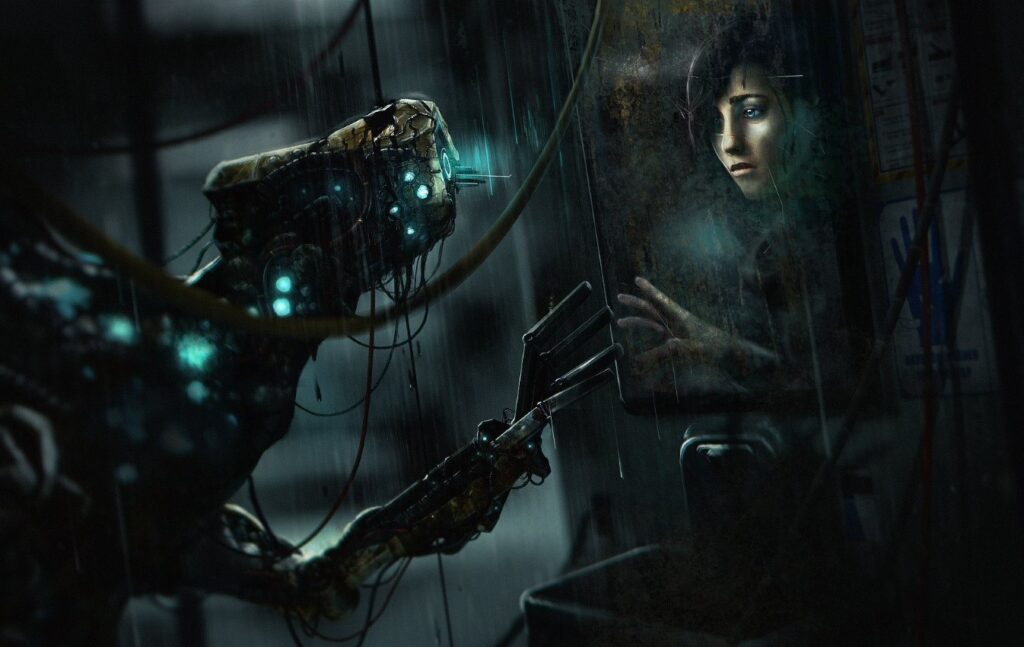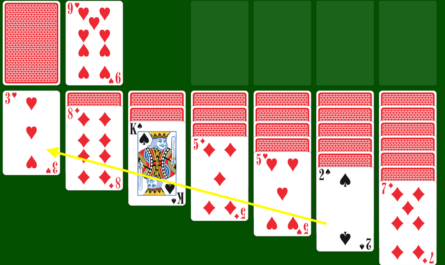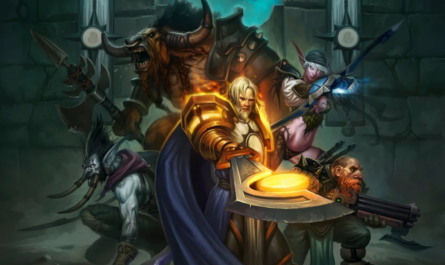ChatGPT gaming interaction has begun to emerge as a revolutionary technology that may substantially improve players’ experiences as the gaming sector continues to develop. Advanced language models may be used by developers to produce more dynamic, immersive video games that engage players like never before.
In this blog article, we will explore how ChatGPT may transform in-game discussions by offering believable speech for more in-depth character development and customizing it based on player choices.
We will also look at how this technology enhances NPCs’ (non-player characters’) AI-driven behavior, leading to better immersion through context-aware answers.
We will also go over the possibility of using ChatGPT to develop non-linear stories and how it can affect player agency and choice. To ensure ethical content development, we will discuss the ethical issues concerning ChatGPT uses for gaming.
Get ready to experience a brand-new level of gameplay driven by advanced language models!
Page Contents
ChatGPT’s Dynamic Dialogue Options

Arguably the most promising technology that developers are using to build more engaging gaming experiences is OpenAI’s ChatGPT.
A particular tool that has attracted much interest recently is OpenAI’s ChatGPT, a framework for language created to produce text that resembles human speech in response to specific instructions.
By giving players more complex options and replies, ChatGPT integration can result in dynamic conversation choices that improve storytelling and engagement.
Realistic Dialogue for Enhanced Development of Characters
Dialogues in conventional game design frequently adhere to a predetermined script, which restricts the scope of character development. Since ChatGPT creates contextually relevant replies depending on user input, discussions between characters may be more lifelike.
As a result, gamers and game characters can form stronger bonds, and the experience as a whole seems less planned.
Dialogues That Change According to Player Choices
The capacity of AI-driven technologies, like as OpenAI’s GTP series, to dynamically alter information in response to user inputs, is a significant benefit. This implies that conversations in gaming apps might alter based on choices or actions made by players inside the game’s universe.
For instance, if a player chooses an aggressive strategy while playing, ChatGPT’s dialogue trees may adjust the conversation’s flow or the NPCs’ tone to reflect this selection.
- Improved immersion: Games with adaptable speech appear more alive and interesting because they react to players’ particular playstyles.
- Higher value of replay: Dynamic conversation options empower users to experiment with various alternatives and results, increasing replayability.
Developers must take into account a number of elements, including protagonist personality uniformity, proper answer creation, and context awareness in order to fully realize ChatGPT’s potential in gaming applications.
Both of these methods—adding more game-specific data throughout training or carefully fine-tuning the language model parameters—can be used to overcome these issues.
A possible way to improve player engagement with more dynamic conversations that intelligently react to user inputs is to include ChatGPT in games. The upcoming era of gaming engagement is primed for exciting new innovations that will further obfuscate the boundaries between simulated environments and reality as this technology develops.
The dynamic dialogue choices in ChatGPT provide players with a realistic and engaging game experience while allowing them to grow their characters via engaging chats. Furthermore, by modifying AI-driven behaviors in reaction to player choices, ChatGPT may produce more realistic NPC interactions.
ChatGPT’s Realistic NPC Interactions

By enabling NPCs to communicate with players in a more realistic way, cutting-edge language models like ChatGPT may be utilized to better enhance game environments and give players immersive experiences.
NPCs can provide more realistic interactions by using cutting-edge modeling of languages like ChatGPT, making them appear more lifelike than written characters.
AI-Driven Behavior That Is Improved for Greater Immersion
The capacity of ChatGPT to enhance AI-driven behavior is a big benefit of employing it in gaming. Traditional NPCs frequently adhere to established scripts, which restricts their in-game behavior.
Developers may design NPCs with ChatGPT’s processing of natural language capabilities that dynamically respond to player decisions and offer particular replies depending on the situation.
Players may more easily relate to these virtual individuals and get emotionally immersed in their journeys because of the heightened immersion.
NPCs That Are Aware of Context and React to Player Actions
Integrating ChatGPT into games not only enhances general AI behavior but also enables context-sensitive NPC communication. These perceptive characters can react correctly to player choices and actions made throughout gameplay, in addition to responding adequately to dialogue options.
For instance, an NPC may display appreciation if a player protects them from harm or scorn if they are neglected at a crucial point.
With such a high level of reactivity, new narrative possibilities, and emergent gameplay situations are made possible, where players’ decisions have real effects regarding the way NPCs understand them and communicate with them over the course of time.
Games like Cyberpunk 2077, which have a complicated conversation mechanism that takes into consideration player decisions and actions, are a perfect example of this type of dynamic interaction.

The following advantages can result from ChatGPT integration in games:
- Deeper immersion: NPCs with more lifelike interactions provide players with a greater sense of immersion in the game environment and develop a stronger bond with the characters and plotlines.
- Improved narrative: Context-aware NPCs provide creators the ability to create more complex stories with character connections that change depending on player choices, making each playing different.
- High replay value: Dynamic NPC behavior encourages players to try out various options over several playthroughs, lengthening the lifespan of the game as a whole.
The potential for ChatGPT technology to revolutionize how we engage with virtual environments is enormous. Developers may produce more captivating experiences that attract gamers through lifelike NPC interactions and immersive narratives by adopting this cutting-edge AI-driven methodology.
Realistic NPC interactions made possible by ChatGPT may contribute to a greater depth of gaming experience, and by leveraging ChatGPT to construct non-linear stories, we can make games even more replayable.
By offering context-aware reactions to player choices and actions, ChatGPT can enhance NPC interactions in video games, resulting in greater immersion, better narrative, and more replay value.
This technology makes it possible for NPCs to act in ways that go beyond planned scripts, resulting in playthroughs that are different from one another and altering how we engage with virtual environments.
Using CHATGPT, Non-linear Storylines Can Be Made
The gaming business is constantly searching for fresh approaches to improve user experiences.
One such method uses ChatGPT or other sophisticated language models to build non-linear tales with branched narratives that depend on player decisions.
This guarantees a consistent narrative framework and gives players more control over their in-game experience.
Customizable Storylines Influenced by User Feedback
Developers may create adaptable plotlines that dynamically react to user input by including ChatGPT in game development. The AI-driven dialogue engine creates contextually appropriate replies and modifies the flow of events as players make choices and interact with characters.
As a result, playing the game becomes more realistic and immersive since each choice has actual effects on the game’s universe. For instance, branching narratives have been effectively incorporated into titles like Detroit: Become Human, giving players a captivating storytelling approach.
Promoting Replayability with Diverse Outcomes

Games using ChatGPT-generated non-linear stories give players a variety of outcomes based on how they choose to play, which promotes replayability.
The gaming value is greatly increased as a result of players being encouraged to take additional routes and see alternate outcomes or scenarios that they may have overlooked during their original playthroughs.
- BioShock Infinite: The critically praised game from Irrational Games offers a variety of decisions throughout its plot that affect character interactions and eventually result in different ends.
- The Witcher 3: Wild Hunt: The multi-award-winning RPG from CD Projekt Red provides a wide range of options that have an impact on the game environment and its characters and may lead to more than thirty different possible outcomes.
Players are encouraged to retry the games in both cases several times in order to explore various plot twists and find new information.
Developers may produce deeply nuanced gaming experiences that hold viewers’ attention for a long time by including ChatGPT-driven non-linear tales in their games.
In conclusion, using ChatGPT tech in game creation brings up intriguing possibilities for developing adaptable storylines that are influenced by player participation. With different results dependent on player choices throughout gaming, this strategy promotes replayability while enhancing player agency inside games.
Future gaming experiences are likely to employ even more cutting-edge narrative strategies as language models such as ChatGPT keep on evolving.
Developers may build deep, exciting experiences that can be easily customized for individual users by utilizing ChatGPT to generate non-linear stories.
The player experience is further improved by ChatGPT’s improvement of player choice as well as agency by giving them significant decision-making possibilities with individualized gameplay alternatives.
With ChatGPT, an AI-driven conversation system that creates contextually appropriate replies and modifies a sequence of events based on user decisions, game creators may construct non-linear stories.
By encouraging replayability and enhancing player agency within games, this strategy creates a greater depth of gaming experiences that hold viewers’ attention for a longer amount of time.
Player Selection and Agency Enhancement
Advanced language models may dramatically increase player autonomy and choice in games. Gamers will feel more in charge of their virtual travels because of AI-powered chat systems like OpenAI’s GPT series.
The advantages of employing ChatGPT for equipping players with vital choices and customizing gaming to suit individual tastes are covered in this section.
Giving Players Meaningful Decision-Making Power

The capacity of ChatGPT to provide players with more relevant gameplay options is one of the biggest benefits of incorporating it into games.
Through scripted language, traditional games usually limit player participation, making for a less interesting experience.
Developers may construct dynamic discussions where each player’s choice has a real influence on the game environment by using AI-generated replies.
The narrative-driven games from Telltale Games, where each decision affects the relationships between characters and the course of the plot, are an excellent illustration of this idea.
By using ChatGPT, these experiences might be enhanced even more and provide numerous opportunities for distinctive playthroughs based on user choices.
Adaptive Gaming Individually Tailored to Preferences
Implementing computational models of languages like ChatGPT not only improves the ability of games to make decisions but also enables game designers to dynamically adjust the gameplay to the preferences of each player.
Content distribution may be customized depending on individual interests or playstyles as AI-driven conversation systems gain knowledge from user interactions.
- RPGs: Players may have access to distinctive speech options in RPGs (role-playing games) based on the characteristics of their character, creating unique questlines and story cycles. Developers of RPGs should do their best to take full advantage of ChatGPT’s influence on video gaming given that this genre still seeks its breakthrough in the eSports competitive gameplay and eSports betting scene led by the best Neteller bookmakers in 2024 at Bookmaker-expert.com/paymentmethod/neteller/ and others. RPGs ought to catch up with genres such as MOBA and FPS, which excel in all mentioned areas.
- Adventure games: These games could include custom puzzles or tasks that take into account a player’s talents and shortcomings, making the experience more interesting.
- Action-adventure games: The severity of combat encounters in action-adventure games might be dynamically adjusted in accordance with player performance, guaranteeing a suitable degree of challenge over the game.
ChatGPT has a wide range of possible uses for boosting player agency and choice. Developers may construct truly immersive environments where players feel a sincere connection to their virtual environment by incorporating this cutting-edge language framework into gaming experiences.
ChatGPT has the ability to change how players interact with virtual environments and to alter how stories are told in video games.
Check out our in-depth guide on AI in Gaming to find out more regarding how artificial intelligence-driven technologies like ChatGPT may help your gaming initiatives or explore alternative ways you might use these developments in your commercial endeavors.
ChatGPT offers a singular chance for players to make significant game-related decisions, enhancing player choice and agency and fostering an immersive experience. Language models have made it possible for game creators to investigate novel avenues for character interaction and conversation.
By introducing meaningful decision-making possibilities, ChatGPT can improve player choice and agency in game design. In addition to personalizing games to suit individual interests, the AI-driven chat system may also create immersive environments where players feel truly a part of their virtual surroundings.
Language Models Open up New Game Development Possibilities

Innovative game creation is made possible by integrating chatbot technology like OpenAI’s GTP series with gaming.
Developers have the chance to experiment with novel communication-based systems or even create whole games centered on dialog dynamics between characters.
Investigating New Gameplay Elements Based on Conversation
Innovative gaming features focused on speech and discussion may be developed by utilizing cutting-edge language models like ChatGPT. For instance, players can be required to interact with NPCs in order to solve puzzles, or they might be required to traverse social situations by selecting the proper replies based on the circumstance.
These innovative concepts not only provide a welcome diversion from the usual action-oriented gameplay but also push players to think critically and solve problems.
Making Games that Put a Lot of Emphasis on Conversation and Character Relationships
Developers may create games with dialogue and interactions between characters at the forefront by integrating ChatGPT into their game designs. These games may offer extensive storytelling sessions that are dynamic and sensitive to player decisions by utilizing AI-generated dialogue.
Examples include narrative-driven adventures similar to Telltale Games’ well-known series like The Walking Dead or interactive fiction games like those available from Choice of Games.
- Improved branching storylines: The ability of ChatGPT to produce coherent text depending on user input allows developers to create complex branching storylines that really evolve as players make choices throughout the game.
- Character dynamics that change throughout time: As NPCs respond naturally to player decisions and actions, conversation created by AI can result in character interactions that are more genuine and develop over time.
- Multiplayer games that are innovative: Developers may build distinctive cooperative or competitive gameplay situations that rely on player communication by integrating ChatGPT into online multiplayer games.
By incorporating language models like ChatGPT, the gaming industry not only improves the general playing experience for gamers but also creates new opportunities for innovation. Future video games may be expected to use AI-driven conversation systems in increasingly more creative ways as technology develops.
With language models, the potential for game development is practically endless, and by examining these new possibilities, we may produce novel experiences that were previously unimaginable. The ethical ramifications of employing ChatGPT software in gaming environments must thus be taken into account.
Merging chatbot solutions like ChatGPT with gaming can result in the creation of original games with novel communication-focused elements. Game designers may develop interactive narratives that are dynamic and sensitive to player decisions by focusing on the dynamics of dialogue between characters.
This not only improves the overall gaming experience for gamers but also gives the business new creative opportunities.
Ethical Aspects in ChatGPT Gaming Applications

When adopting AI-driven systems, developers must be aware of problems like biased behavior or the creation of objectionable material to guarantee a great gaming experience for every player.
Identifying and Addressing Biases in AI-Generated Dialog
Language models’ training sets may unintentionally skew the conversation they create. These biases may appear in-game interactions as discrimination, favoritism, or stereotyping.
Developers should, in order to reduce these risks, do the following:
- check for bias in AI-generated information and assess it.
- during the development and testing phases, take into account different viewpoints.
- use technologies like OpenAI’s fine-tuning methods to cut down on undesirable behavior in your chatbot programs.
Using Moderation to Ensure Responsive Content Creation
It is essential to establish moderation procedures to provide a safe and pleasant gaming environment.
Developers should build moderation procedures to stop hazardous or objectionable content from reaching players when integrating ChatGPT into games. These are:
- User-feedback mechanisms: Providing players with quick and effective ways to report offensive discourse or NPC conduct.
- Filtration procedures: Using filters to prevent certain words or phrases that have been judged offensive from appearing on-screen while playing (content control software might be useful in this regard).
- Human supervision: Engaging human moderators to examine AI-generated material and make sure it complies with moral and societal norms.
Developers should be aware of the most recent developments in AI ethics in addition to tackling these issues. Resources like OpenAI’s Ethics & Safety Guide offer insightful information on ethical AI development procedures.
The use of ChatGPT technological advances in games opens up fascinating opportunities for dynamic interactions and immersive narratives.
Game makers may utilize the effectiveness of language models while preserving a good, comprehensive experience for everyone playing by proactively addressing any ethical difficulties.
Conclusion

Developers that use ChatGPT in games must be aware of ethical issues including biased conduct and the creation of objectionable content.
They should build moderation methods to stop harmful information from reaching gamers, review AI-generated content for evidence of bias, and remain up to date on the most recent developments in AI ethics in order to reduce these dangers.
Developers may use language models effectively in this way while still ensuring that all players have a good time.





